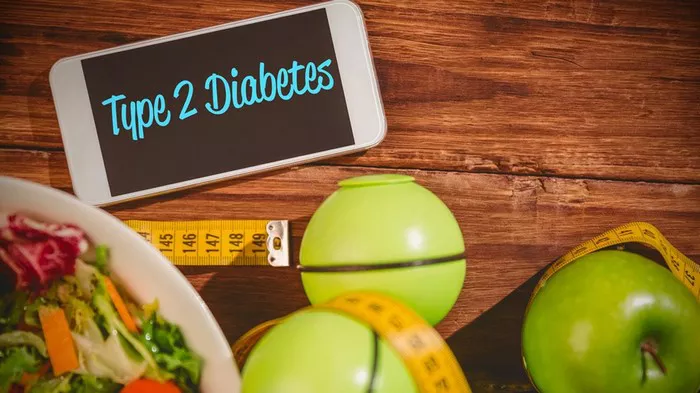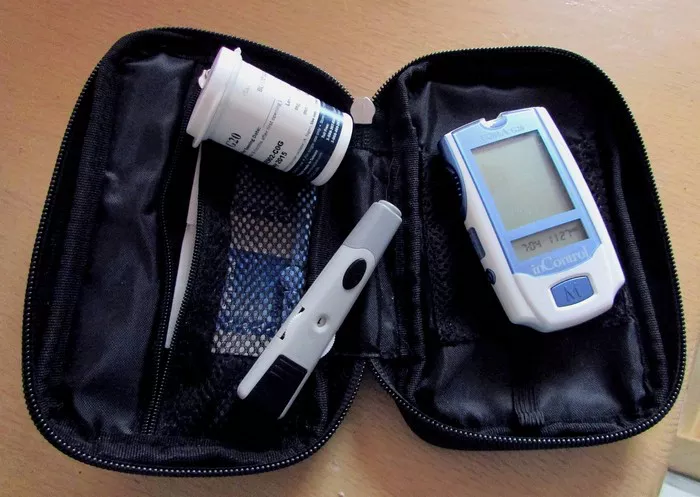Hyperglycemia, or high blood sugar, is a hallmark of diabetes and can lead to serious health complications if not properly managed. While people with diabetes are most at risk for hyperglycemia, anyone can experience it under certain conditions, such as during illness or stress. Recognizing the symptoms of high blood sugar is crucial for early intervention and preventing long-term damage to the body. This article delves into the various symptoms of high blood sugar, the underlying causes, and the potential complications that can arise if it is left untreated.
Understanding Hyperglycemia
Hyperglycemia occurs when there is too much glucose circulating in the blood. In people with diabetes, hyperglycemia happens because the body either doesn’t produce enough insulin or doesn’t use insulin effectively. Insulin is a hormone produced by the pancreas that helps glucose enter cells, where it is used for energy. Without enough insulin, glucose remains in the bloodstream, leading to elevated blood sugar levels.
Blood sugar levels are considered high when they exceed the normal range:
Fasting blood sugar (before meals): 70-99 mg/dL is normal; anything above 126 mg/dL is considered hyperglycemia.
Postprandial blood sugar (after meals): Below 140 mg/dL is normal; anything above 180 mg/dL is considered hyperglycemia.
For individuals with diabetes, hyperglycemia is defined by blood sugar readings that consistently rise above these levels, especially after meals or during times of stress.
Early Symptoms of High Blood Sugar
In the early stages of hyperglycemia, symptoms may be mild and easily overlooked. However, recognizing these early warning signs is essential for preventing more severe complications.
Increased Thirst (Polydipsia)
One of the first signs of hyperglycemia is excessive thirst. When blood sugar levels are high, the body tries to eliminate excess glucose through urine, leading to dehydration. As a result, individuals with high blood sugar may experience intense thirst and drink more fluids than usual. This is the body’s attempt to compensate for the loss of water caused by frequent urination.
Frequent Urination (Polyuria)
Closely related to increased thirst is the symptom of frequent urination. When there is too much sugar in the blood, the kidneys filter out excess glucose by excreting it in the urine. This process draws water from the body, leading to more frequent urination. If you notice that you’re going to the bathroom more often than usual, especially during the night (nocturia), it may be a sign of high blood sugar.
Dry Mouth
Dry mouth is another common symptom of hyperglycemia. As the body loses water through increased urination, it becomes dehydrated, which can cause a persistent dry mouth. This dryness may be uncomfortable and can lead to further complications, such as an increased risk of oral infections and gum disease.
Fatigue
Fatigue is a nonspecific but common symptom of high blood sugar. When the body is unable to use glucose for energy due to insulin resistance or lack of insulin, cells are deprived of fuel. This lack of energy can cause feelings of tiredness, sluggishness, and exhaustion, even after getting adequate rest. Fatigue is often one of the first signs that blood sugar levels are too high.
Blurred Vision
High blood sugar can affect the eyes and cause blurred vision. Elevated glucose levels cause the lenses in the eyes to swell, which alters their shape and affects the ability to focus. Blurred vision may come and go as blood sugar levels fluctuate. However, prolonged hyperglycemia can lead to more serious eye problems, such as diabetic retinopathy, if not addressed.
Headaches
Frequent headaches are another early sign of hyperglycemia. High blood sugar can cause fluctuations in fluid levels in the body, leading to dehydration and headaches. The brain may also be affected by changes in glucose levels, which can trigger headaches and feelings of dizziness or confusion.
Progressive Symptoms of High Blood Sugar
If blood sugar levels remain high over an extended period, more serious symptoms can develop. These symptoms indicate that the body is struggling to cope with the excess glucose, and medical attention is necessary.
Unexplained Weight Loss
Unexplained weight loss is a concerning symptom of prolonged hyperglycemia. When the body is unable to use glucose for energy, it begins to break down fat and muscle for fuel. This can result in unintentional weight loss, even if you’re eating normally or more than usual. Unexplained weight loss is more common in individuals with type 1 diabetes, but it can also occur in those with poorly controlled type 2 diabetes.
Slow-Healing Wounds
High blood sugar can impair the body’s ability to heal wounds. Elevated glucose levels can damage blood vessels and nerves, reducing blood flow to affected areas. This slows down the healing process and increases the risk of infections. People with diabetes who experience slow-healing cuts, sores, or ulcers should seek medical attention to prevent further complications.
Tingling or Numbness in Hands and Feet
Prolonged hyperglycemia can lead to nerve damage, a condition known as diabetic neuropathy. This damage often starts in the extremities, such as the hands and feet, and may cause tingling, numbness, or a burning sensation. Diabetic neuropathy can be painful and can lead to more serious issues, such as foot ulcers or infections, if not managed properly.
Recurrent Infections
High blood sugar weakens the immune system, making it more difficult for the body to fight off infections. Individuals with uncontrolled hyperglycemia may experience frequent infections, such as urinary tract infections, yeast infections, or skin infections. These infections may also be more severe and harder to treat than in individuals with normal blood sugar levels.
Fruity-Smelling Breath
Fruity-smelling breath is a sign of a dangerous condition called diabetic ketoacidosis (DKA), which occurs when the body starts breaking down fat for fuel instead of glucose. This process produces ketones, which build up in the blood and can be detected through breath. DKA is more common in individuals with type 1 diabetes but can also occur in type 2 diabetes under certain conditions, such as illness or stress. Fruity-smelling breath, along with symptoms such as nausea, vomiting, and abdominal pain, requires immediate medical attention.
Confusion or Difficulty Concentrating
High blood sugar can affect brain function, leading to symptoms such as confusion, difficulty concentrating, or even memory problems. These cognitive issues may be mild at first but can worsen if hyperglycemia is not managed effectively. Severe hyperglycemia can lead to diabetic hyperosmolar syndrome, a life-threatening condition characterized by extreme dehydration, confusion, and, in some cases, coma.
Complications of Untreated High Blood Sugar
If hyperglycemia is not treated, it can lead to serious and potentially life-threatening complications. These complications can affect multiple organ systems and require immediate medical attention.
Diabetic Ketoacidosis (DKA)
As mentioned earlier, diabetic ketoacidosis (DKA) is a serious complication of untreated hyperglycemia. When the body doesn’t have enough insulin to use glucose for energy, it starts breaking down fat, producing ketones as a byproduct. High levels of ketones make the blood acidic, which can lead to symptoms such as nausea, vomiting, abdominal pain, rapid breathing, and confusion. If left untreated, DKA can lead to coma or death.
Diabetic Hyperosmolar Syndrome (DHS)
Diabetic hyperosmolar syndrome (DHS) is a life-threatening condition that typically occurs in individuals with type 2 diabetes. It is characterized by extremely high blood sugar levels, severe dehydration, and altered consciousness. Unlike DKA, DHS does not involve significant ketone production, but it can still be fatal if not treated promptly. Symptoms include extreme thirst, dry mouth, confusion, seizures, and loss of consciousness.
Long-Term Complications
Chronic hyperglycemia can lead to long-term complications that affect various parts of the body. These complications include:
Cardiovascular Disease: High blood sugar damages blood vessels and increases the risk of heart disease, stroke, and hypertension.
Kidney Damage (Nephropathy): Prolonged hyperglycemia can damage the kidneys’ filtering system, leading to chronic kidney disease or even kidney failure.
Eye Damage (Retinopathy): Elevated glucose levels can damage the blood vessels in the eyes, leading to vision problems or blindness.
Nerve Damage (Neuropathy): Persistent high blood sugar can lead to nerve damage, particularly in the hands and feet, causing pain, tingling, or loss of sensation.
Preventing High Blood Sugar
Preventing hyperglycemia involves a combination of lifestyle changes, medication management, and regular monitoring of blood sugar levels. Here are some key strategies to prevent high blood sugar:
Follow a Balanced Diet
A balanced diet that is low in refined carbohydrates and sugars can help keep blood sugar levels stable. Focus on eating whole grains, lean proteins, healthy fats, and plenty of fruits and vegetables. Working with a dietitian or nutritionist can help create a personalized meal plan that meets your specific needs.
Exercise Regularly
Physical activity helps improve insulin sensitivity and lower blood sugar levels. Aim for at least 150 minutes of moderate-intensity exercise per week, such as walking, cycling, or swimming. Always consult with your healthcare provider before starting a new exercise routine, especially if you have diabetes-related complications.
Monitor Blood Sugar Levels
Regular monitoring of blood sugar levels is essential for individuals with diabetes. Keeping track of your blood sugar readings can help you identify patterns and make adjustments to your diet, exercise, or medication as needed. Continuous glucose monitors (CGMs) are also available for real-time tracking of blood sugar levels.
Take Medications as Prescribed
If you have diabetes, it is crucial to take your medications as prescribed by your healthcare provider. Medications such as insulin or oral hypoglycemic agents help regulate blood sugar levels and prevent hyperglycemia. Never skip doses or make changes to your medication regimen without consulting your doctor.
Manage Stress
Stress can have a significant impact on blood sugar levels. Engaging in stress-reducing activities such as meditation, yoga, or deep breathing exercises can help lower blood sugar and improve overall well-being.
Stay Hydrated
Drinking plenty of water helps flush excess glucose from the body and prevents dehydration. Make sure to stay hydrated, especially during illness or periods of physical activity.
See also: What are the Symptoms of Sudden High Blood Sugar
Conclusion
High blood sugar, or hyperglycemia, can have serious consequences if not managed properly. Recognizing the early symptoms of hyperglycemia—such as increased thirst, frequent urination, fatigue, and blurred vision—can help you take action before the condition worsens. By monitoring your blood sugar levels, following a balanced diet, exercising regularly, and taking medications as prescribed, you can prevent hyperglycemia and reduce the risk of complications.
If you experience severe symptoms such as unexplained weight loss, slow-healing wounds, or fruity-smelling breath, seek medical attention immediately. Early intervention is key to preventing life-threatening conditions such as diabetic ketoacidosis and diabetic hyperosmolar syndrome. With proper management, individuals with diabetes can lead healthy, fulfilling lives while minimizing the risks associated with high blood sugar.
Related topics:
What Are the Symptoms of Uncontrolled Diabetes?

























